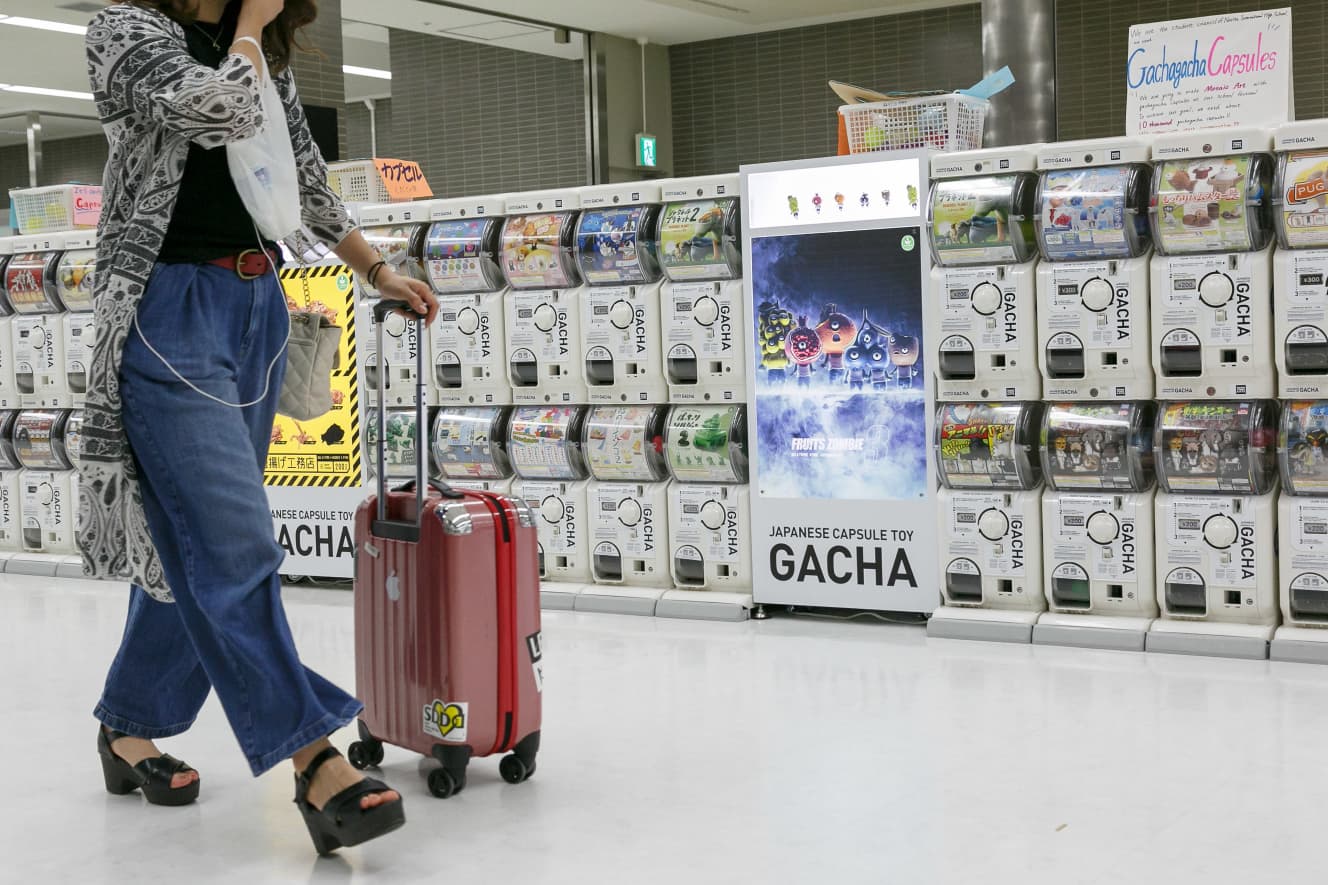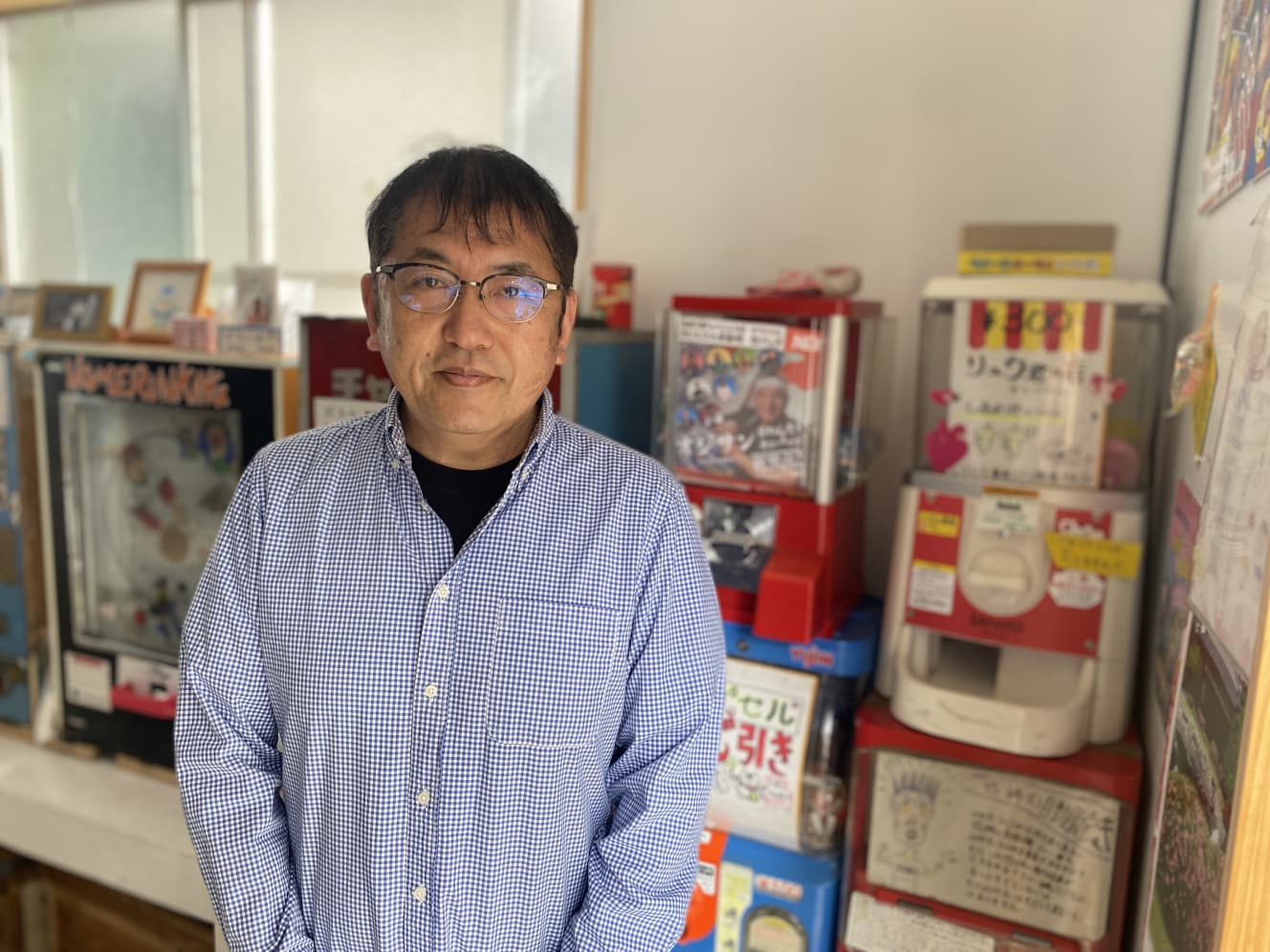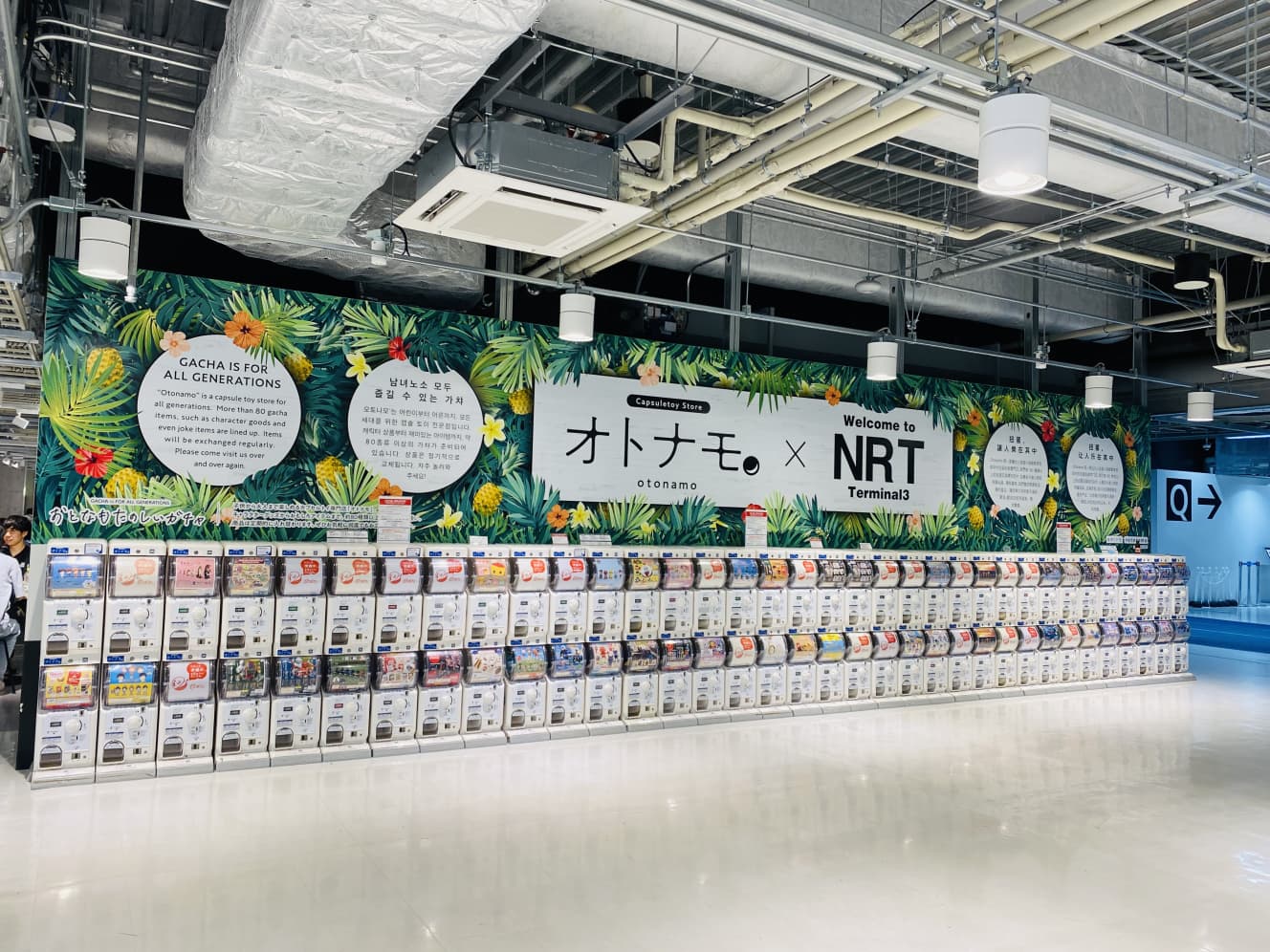Post-Pandemic Surge of Gacha Shops in Vacant Spaces
Before long, gacha specialty stores are popping up one after another.
In busy shopping districts, malls, fashion buildings, station concourses, and underground shopping area, capsule toys, or gacha gacha, specialty stores have been popping up. This trend seems to be growing stronger.
Many of the specialized stores seen in recent years feature clean, white, or calm black store designs, with rows of capsule toy vending machines, sometimes numbering in the hundreds or even over a thousand. Three years ago, Bandai’s official shop “Gashapon no Depaato Ikebukuro Sohonten” opened at Ikebukuro Sunshine City, featuring the world’s largest collection of 3,010 machines, earning a Guinness World Record. Additionally, on another floor of Sunshine City, another capsule toy shop, “Gacha Gacha no Mori,” is also operating.
In Shinjuku, Bandai also runs a direct shop, “Gashapon Bandai Official Shop Shinjuku Marui Annex.” In the Shinjuku Subnade underground shopping area, after the closure of the long-standing Fukuya Bookstore at the end of 2022, the space was transformed into “Gacha Gacha no Mori,” bringing new vitality to the area. Meanwhile, a new capsule toy corner has emerged in a part of the South Exit Mosaic Street in Shinjuku, which is currently undergoing redevelopment.
In areas like Shibuya, Harajuku, Asakusa, and Odaiba… and not just in Tokyo, gacha specialty shops and corners are rapidly opening, and it’s common to see people spinning the levers. In these urban areas, it seems that it’s not only children and enthusiasts, but also many adults, particularly women, who frequent these stores. Additionally, inbound tourists visiting Japan can often be seen excitedly engaging with the machines, which is becoming more common in the city center.
One of the early examples of this trend, where vacant stores and spaces were turned into capsule toy corners, was in 2016 at Narita Airport’s Terminal 2, where a dedicated corner was set up to utilize an unused space.

It serves a role like a customer attraction device.
Katsuhiko Ono, the chairman of the Japan Gacha Gacha Association, comments on the current surge in store openings:
“Since the COVID-19 pandemic, it has been accelerating rapidly.”
He adds,
“Specialty stores and corners dedicated to gacha machines and capsule toys are playing a role as ‘customer attraction devices’ in places where they can draw in crowds. This has created a situation where visitors often go on to explore other shops in shopping districts or tourist areas, generating a synergistic effect.”
Why are capsule toy stores increasing so rapidly?
First, the increasing popularity and demand for capsule toys themselves is a key factor. The range of characters, intricate miniatures, accessories, and charms appeal not only to children and enthusiasts but also to adults. In fact, it seems that the adult demographic is even more energized by these products, making capsule toys a form of entertainment enjoyed by a broad audience.
The quality of the items, combined with the global popularity of anime, games, and other content, has made them particularly attractive to international tourists. These visitors likely enjoy them as an affordable, experiential form of shopping.
The aforementioned Ono adds,
“Through social media and inbound tourism websites, new and interesting products are being shared, which has led people to think, ‘I should try this when I go to Japan!’ I believe this is one of the reasons for the rise in popularity. Of course, I think a similar trend exists among domestic users as well.”
Ono analyzed.

Rising labor costs also.
A writer familiar with marketing trends explains:
“It goes without saying that the COVID-19 pandemic had a huge impact on various industries. The period when foot traffic disappeared from the streets caused significant damage to physical stores, leading to a wave of closures, something everyone is aware of. The rise of online shopping also contributed to this.
In this context, gacha machines have a relatively low initial investment, with the only major cost being the installation of the capsule machines. They don’t require much in terms of electricity, and the maintenance mostly involves product restocking and occasional machine servicing, which is minimal. The fact that labor costs, which are a major concern for many industries, are almost nonexistent is a significant advantage. The operational cost-effectiveness is incredibly high.”
On the other hand, in residential areas, such as shopping streets and roadside locations, it is becoming common for vacant stores to be replaced by businesses like laundromats, frozen food vending machine stores, or unmanned frozen dumpling shops. This can be attributed to similar reasons, such as lower labor costs.
Capsule toy specialty stores are likely the urban and shopping mall versions of this trend (though there are cases where capsule toy stores do open in residential shopping areas as well).
In 2023, the market reached a record high of 64 billion yen, and it is expected to exceed that amount this year. The overall vitality of the capsule toy market seems to be acting as a tailwind, boosting foot traffic to commercial and tourist areas.
“The bright and open store designs that make it easy to enter have completely changed the image of gacha stores, especially in urban areas, which were once seen as gathering spots for enthusiasts. The large crowds they attract also help boost foot traffic to shopping malls and shopping streets,” explains the aforementioned writer.
Regarding some of the capsule toy specialty stores opening in urban areas, Ono adds:
“Recently, there has been an increase in stores directly operated by agencies that act as intermediaries between manufacturers and retailers, handling product replacement and restocking.”
Direct operation by agencies, which makes it easier to track sales trends and other factors, further enhances efficiency, making it an ideal business model.
As the products continue to evolve, and the desire to spin the machines keeps growing, the opening of capsule toy specialty stores and corners—offering low costs and high customer attraction—will likely continue to increase.

Interview and text by: Satoru Ota